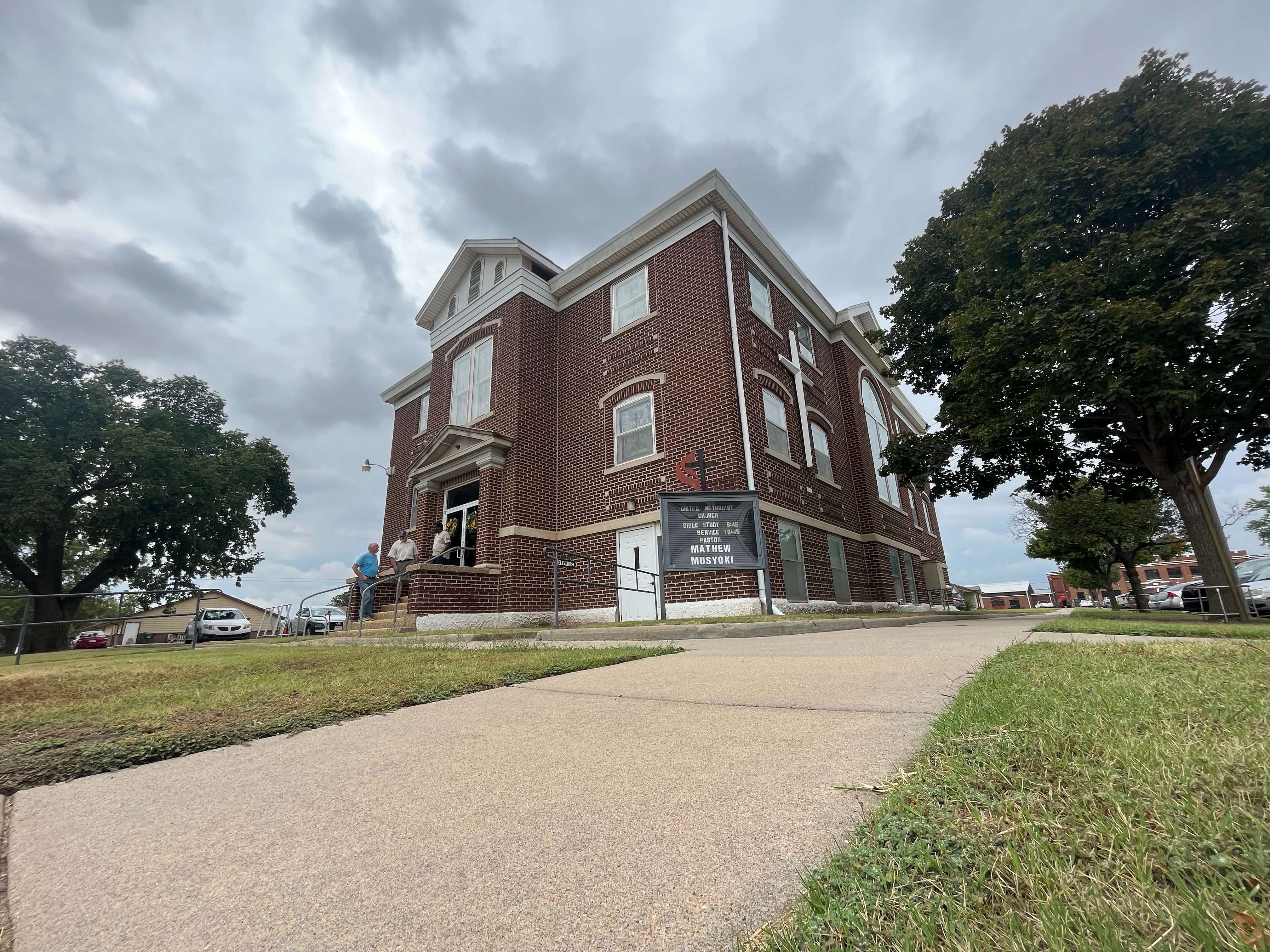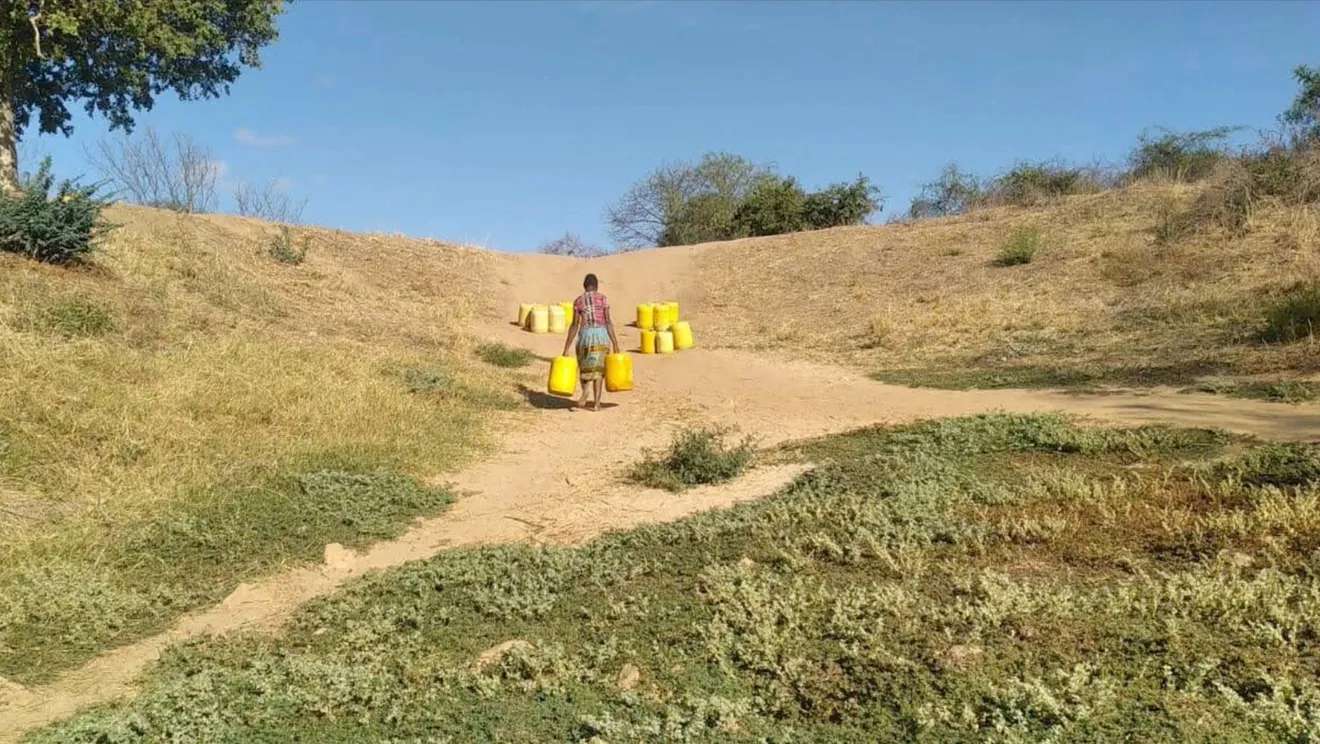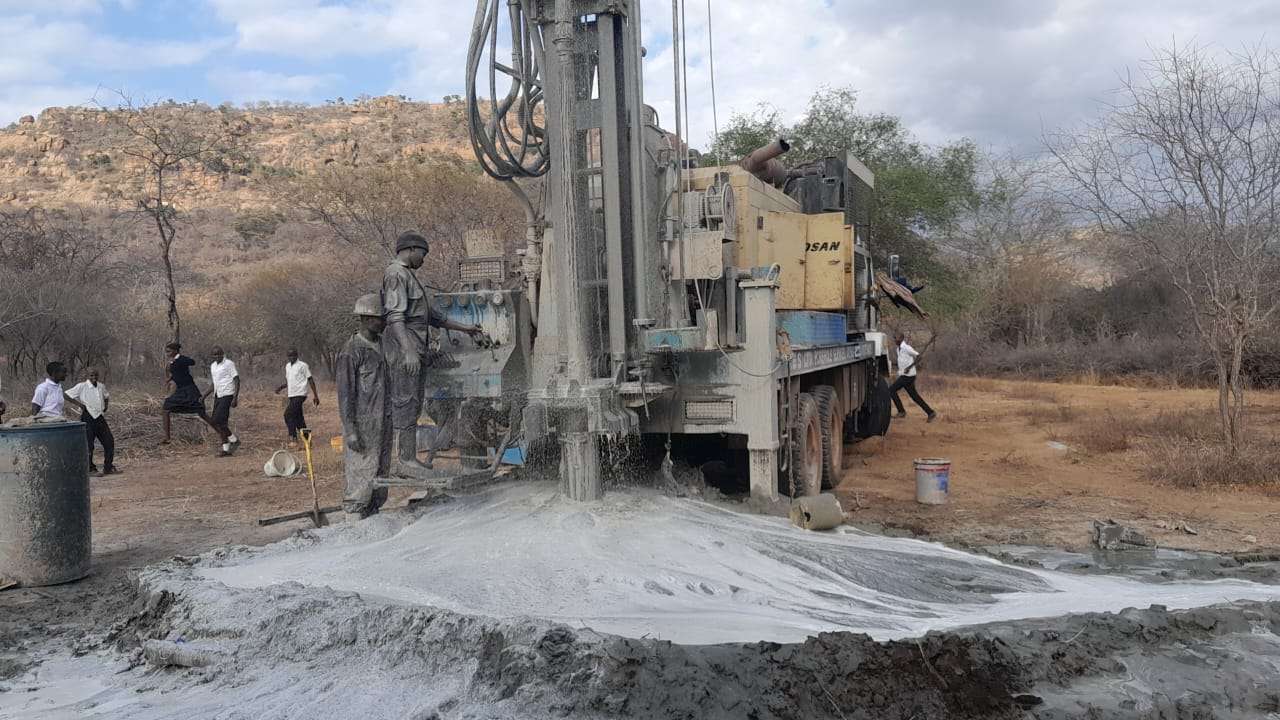
By OLIVIA BERGMEIER
Salina Post
CUNNINGHAM, KS — During some of Rev. Mathew Musyoki's first sermons in his new rural home 8,000 miles from where he grew up, he shared his life with the congregations of Cunningham and Penalosa Methodist churches.
In his sermons, Musyoki told his congregations of the hardships his village experienced and the collective action they would take to overcome each issue.
One of the community's most dire needs was clean drinking water.
Musyoki grew up in a small community in Kenya named Kakindu Village, where the closest water source ranged from 5 miles away in the rainy season to almost 15 miles during the dry months.
Community members in Kakindu Village had to walk these distances to gather water for general use.
The village women often performed this task every two to three days, filling up five-gallon barrels and hauling them back home, usually by hand.

Musyoki said each barrel can weigh around 50 lbs each.
"If you look at where they were getting this water some time back, in (some) places, they would go wait for hours — waiting for it to fill up," Musyoki said. "Taking the time, and then it's not very clean."
Two members of Musyoki's congregation in Cunningham decided to take action, offering to join the project and raise money within the community and beyond to help the small village.
After six years, Kakindu Village drilled its second well, providing clean drinking water to its almost 3,000 residents — through the joint efforts of hundreds of Kansans and the small Kenyan community.
How the Kenya Water Project began
In 2017, Musyoki's brother, Samuel Musyoki, began a survey to find a potential dig site for a well.
Samuel Musyoki contacted local engineer Charles Ngala Kithome, who found the prospect of a well in Kakindu village possible.
In 2020, after Musyoki arrived in Cunningham, Alan Albers and Don Hellar, two Cunningham Methodist Church members, joined the project.
Hellar offered 20 years of professional engineering experience, digging wells and participating in "all kinds of water projects across the state of Kansas," he said.
Albers focused on outreach and fund management in the community and beyond, reaching out to other churches and spreading the story of the now Kenya Water Project to the local area.
As the project picked up speed in the community late last year and early this year, Albers said more than 100 people mailed the project.
Albers sent a few informative updates to donors, and without asking for more, some would send back another donation.
"All I said was we were still trying to do more and more donations," Albers said. "It really gives you a good feeling about humans in general."
Albers said the Kenya Water Project fundraised almost $77,500 in the last two and a half years.
Major donors to the project include Penalosa Methodist Church contributed $10,000 and Pratt Methodist Church donated $8,000.
Cunningham United Methodist Church, with $8,000 and Greensburg Methodist Church, with $28,500. Individuals donated the rest of the cash.
The influx of funds allowed the project to make it through a few troubles on the first well in the village.
Drilling the wells
The Kenya Water Project finished its first well this summer, and on Friday, it finalized testing the drinking water from the second.
For most of the project, separated by 8,000 miles, both communities built trust to finish this substantial task.
Hellar said at first, he made plans to visit Kakindu Village to witness the work but changed his mind.
"After we started, I realized there was no reason for me to do that — they had things under control there," Hellar said. "We have relied entirely on Mathew's family and the organization they already had in place, and it has worked very well."
While digging the first well in spring this year, the project halted when the drill met a hard-stone layer at 500 ft deep, 100 ft short of access to water.
As the dry season grew closer, Albers, Hellar and Musyoki immediately saw the need for water. With support from local Kansans, the Kenya Water Project still provided clean water as it looked for a new dig site.
"We spent around $6,000 hauling water," Albers said. "We were paying for two truckloads of water a week."
Albers said hauling water was only possible with the pre-established work from the Kakindu community.
As the 3,500-gallon truckloads arrived, the community members stored the water in sizeable rain-catching drums already built by the community.
"None of these things would have ever worked if the people of Mathew's village and some of his family hadn't had the ball rolling years ago," Albers said.

In June, engineers found the second site for the first well, and as clean water gurgled from the pipe, Kakindu community members lined up to try their new water source.
Friday this week, villagers lined up once more as clean water bubbled to the surface near the village's Mikoongoni Secondary School, providing its students easy access to clean drinking water.
Musyoki said after integrating into the Cunningham and Penaloosa churches, he found that Kansan's are transparent and practical.

"In my stay here in Kansas, I have made many friends, and one of them has told me, 'there's no pretense in Kansas,'" Musyoki said. "They say what they do and do what they say... if they need to do something good, they do."
Donations to the Kakindu Village Water Project can be sent to the Cunningham Lions Club at P.O. Box 95, Cunningham, KS 67035. Checks can be addressed to Kenya Water.





